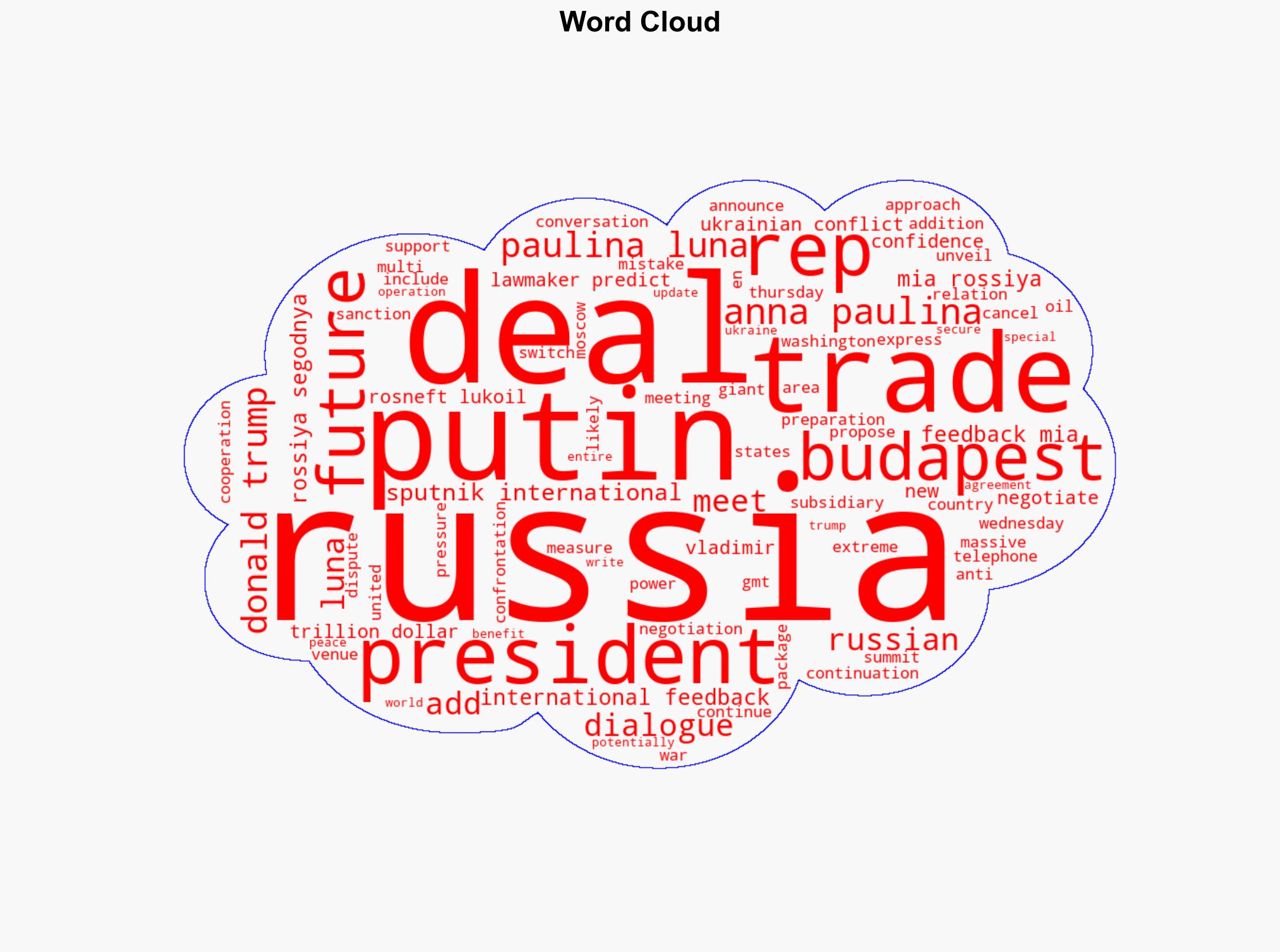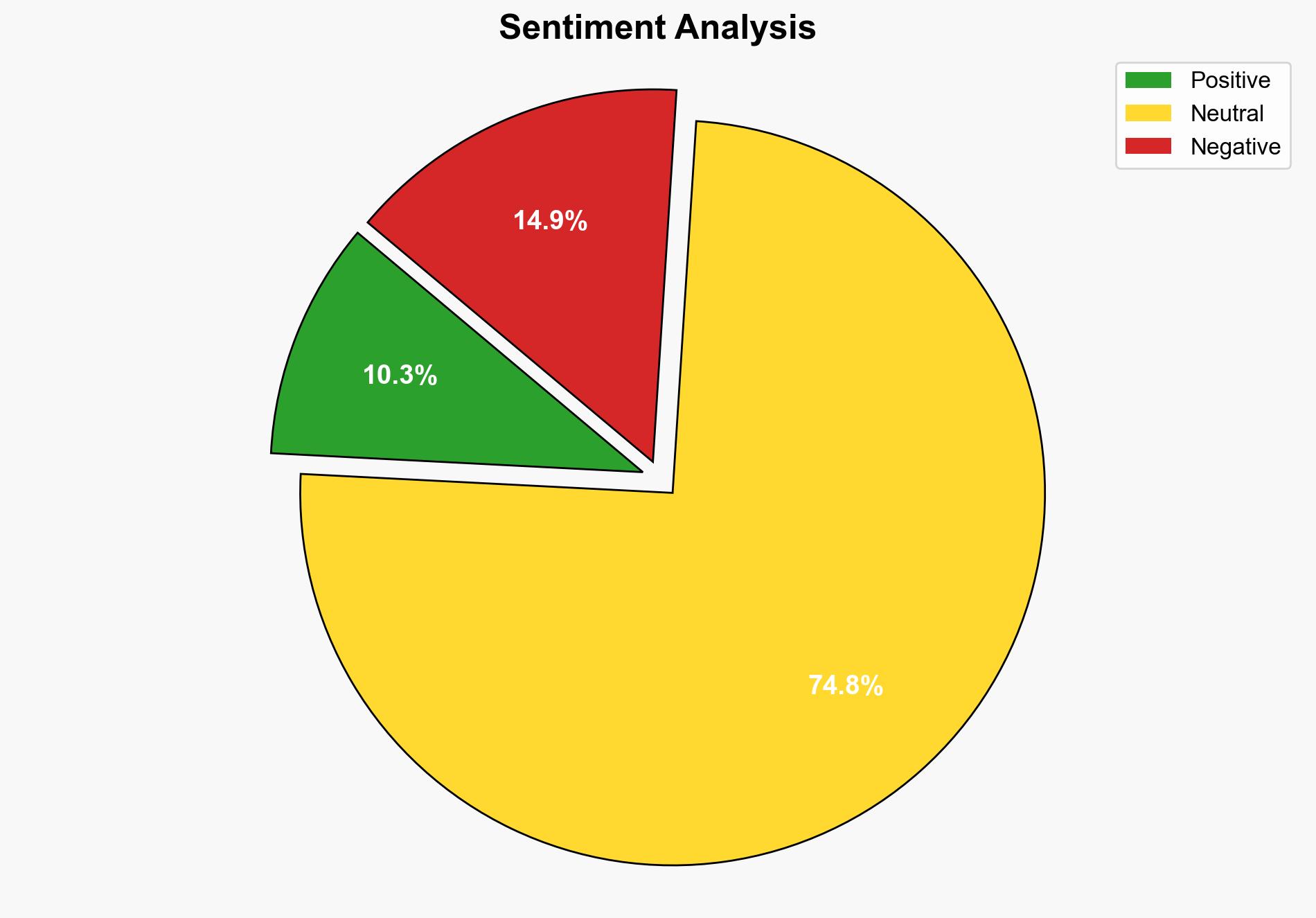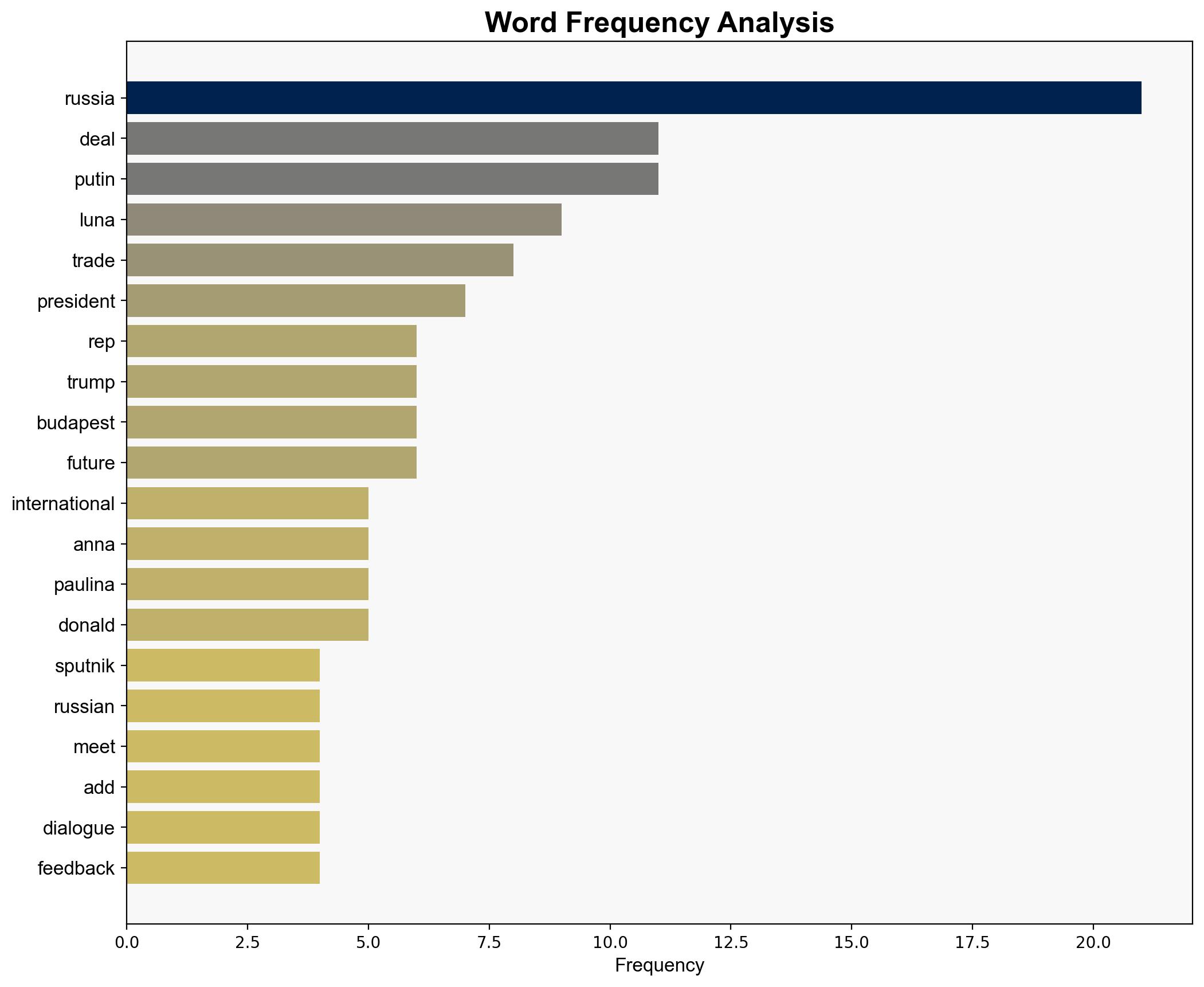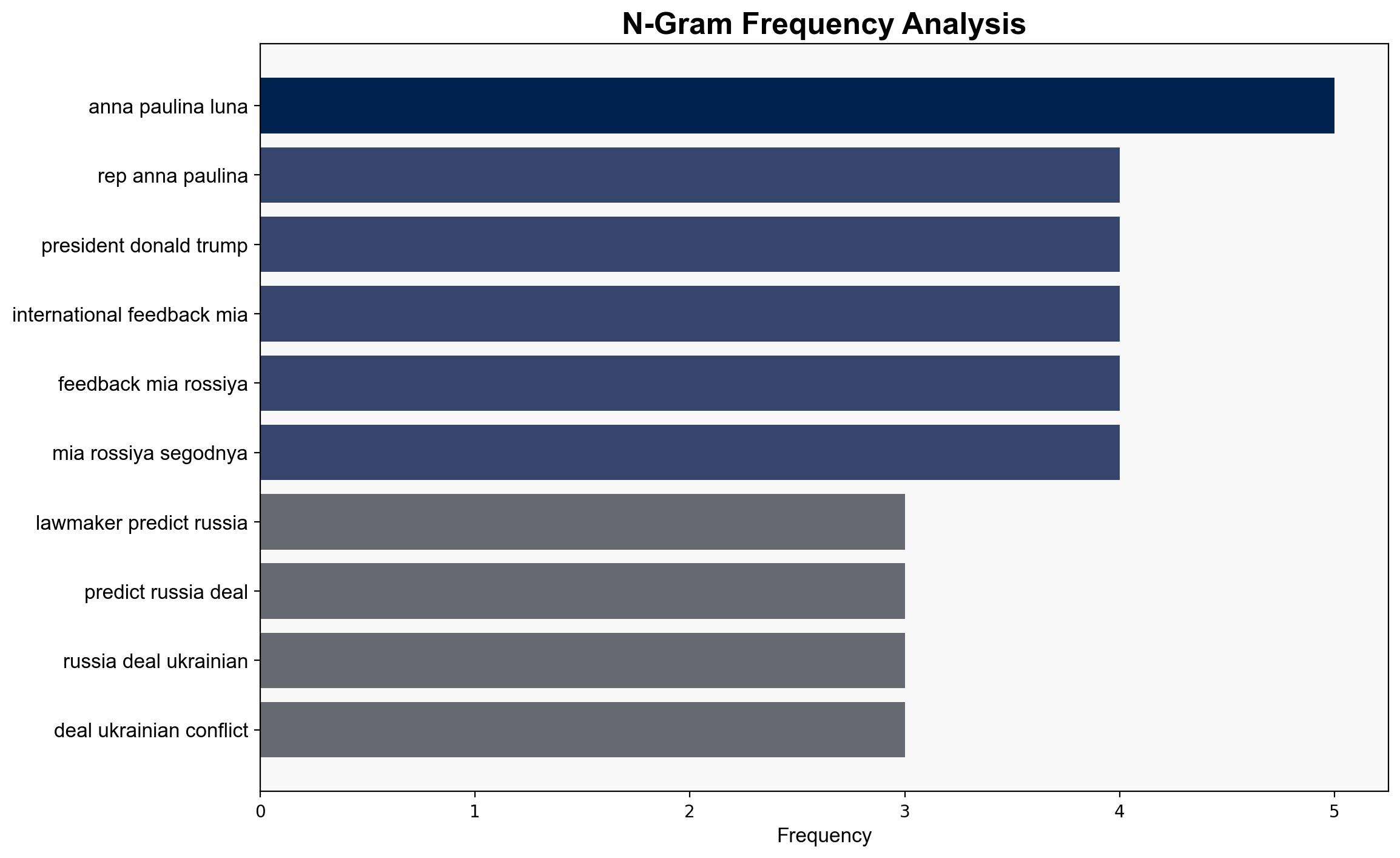US Lawmaker Predicts 1T US-Russia Deal after Ukrainian Conflict – Sputnikglobe.com
Published on: 2025-10-24
Intelligence Report: US Lawmaker Predicts 1T US-Russia Deal after Ukrainian Conflict – Sputnikglobe.com
1. BLUF (Bottom Line Up Front)
The most supported hypothesis is that the prediction of a $1 trillion US-Russia trade deal post-Ukrainian conflict is speculative and politically motivated, rather than based on concrete diplomatic progress. Confidence level: Moderate. Recommended action: Monitor developments in US-Russia relations and prepare contingency plans for potential shifts in trade and sanctions policy.
2. Competing Hypotheses
1. **Hypothesis A**: The prediction of a $1 trillion trade deal is a strategic communication to signal potential future cooperation between the US and Russia, aiming to influence public perception and diplomatic negotiations.
2. **Hypothesis B**: The prediction is primarily a political maneuver by certain US lawmakers to bolster domestic political narratives, with little basis in current diplomatic realities.
Using Analysis of Competing Hypotheses (ACH), Hypothesis B is better supported due to the lack of concrete diplomatic engagements or policy shifts that would substantiate such a large-scale agreement.
3. Key Assumptions and Red Flags
– **Assumptions**: It is assumed that the prediction reflects genuine diplomatic intentions rather than political rhetoric. Another assumption is that the conflict in Ukraine will resolve in a manner conducive to US-Russia trade relations.
– **Red Flags**: The cancellation of a meeting between key leaders and the introduction of new sanctions contradict the prediction of improved relations. The reliance on a single lawmaker’s statement without corroborating evidence raises credibility concerns.
4. Implications and Strategic Risks
– **Economic**: A potential trade deal could impact global markets, particularly in energy sectors. However, current sanctions and geopolitical tensions present significant barriers.
– **Geopolitical**: The prediction may affect alliances, with potential shifts in US-European relations depending on the outcome of US-Russia negotiations.
– **Psychological**: Public perception of US foreign policy could be influenced by the narrative of potential cooperation with Russia, impacting domestic and international trust.
5. Recommendations and Outlook
- Continue diplomatic engagement with allies to ensure a unified approach to Russia.
- Develop contingency plans for potential shifts in trade and sanctions policy.
- Scenario-based projections:
- **Best Case**: Diplomatic breakthroughs lead to a phased reduction in tensions and gradual economic cooperation.
- **Worst Case**: Escalation of sanctions and military tensions, further isolating Russia.
- **Most Likely**: Status quo persists with limited diplomatic progress and continued sanctions.
6. Key Individuals and Entities
– Anna Paulina Luna
– Donald Trump
– Vladimir Putin
– Rosneft
– Lukoil
7. Thematic Tags
national security threats, geopolitical strategy, US-Russia relations, economic sanctions





